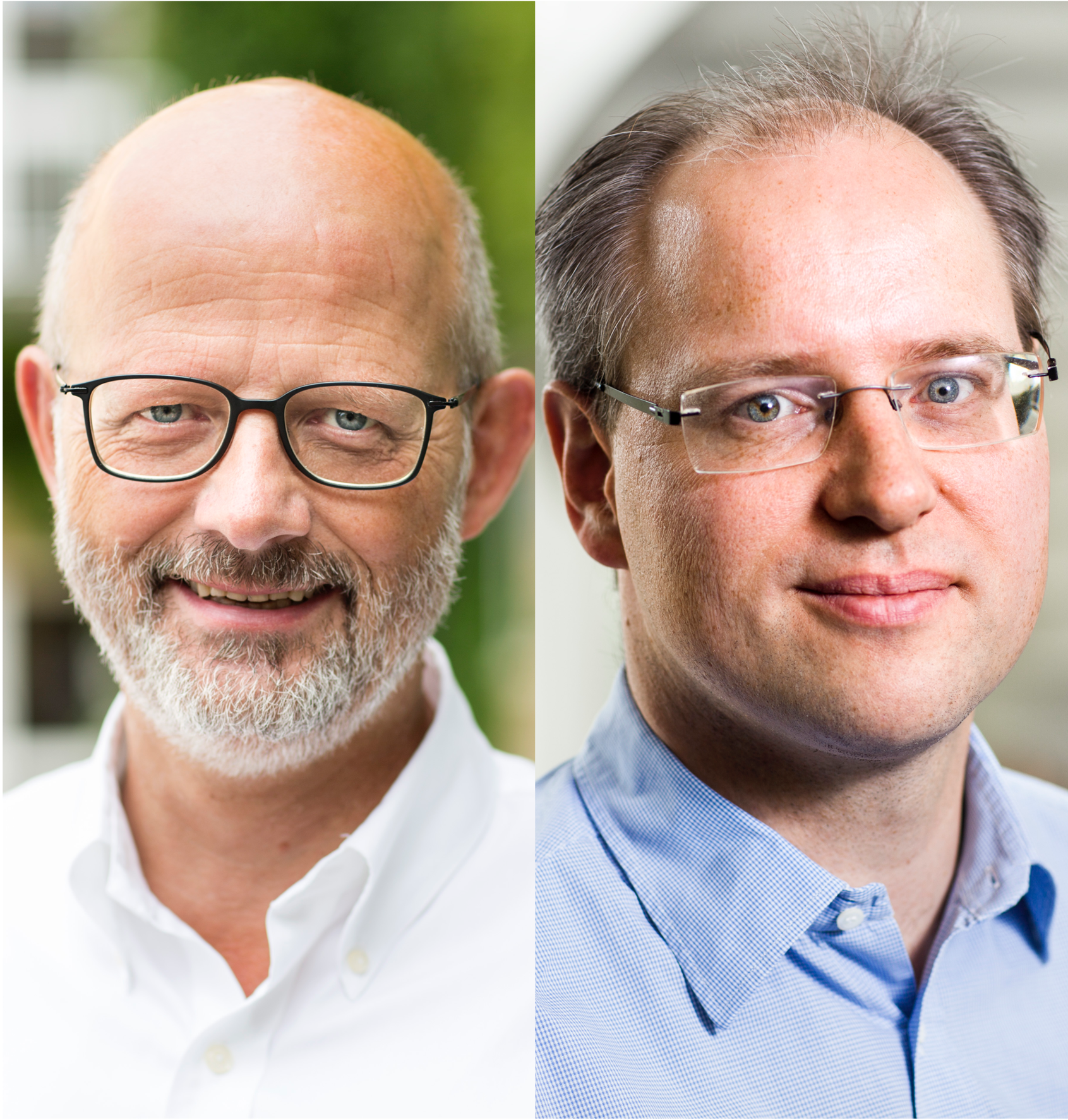Villum Synergy grants for data-driven projects at Aarhus University
Prof. Niels Christian Nielsen and Prof. Henrik Birkedal from Department of Chemistry and iNANO each receive a Villum Synergy grant for their data-driven interdisciplinary research projects. Their research projects are based on data science within optimizing sensitivity in Nuclear Magnetic Resonance (NMR) spectroscopy and improving the analysis of 3D imaging data, respectively.

Optimising NMR sensitivity
Professor Niels Christian Nielsen has received DKK 3 million for the project ‘Stochastic optimal control: Designing dynamic nuclear polarization in large open quantum systems’ together with Associate Professor Claudia Strauch from the Department of Mathematics.
While being one of the most important analytical technologies ever invented nuclear magnetic resonance (NMR) spectroscopy and magnetic resonance imaging (MRI) suffer a major challenge in terms of sensitivity.
Their project aims to develop mathematical, data-driven design strategies involving stochastic optimal control for optimising NMR sensitivity through dynamic nuclear polarization(DNP).
Improved 3D imaging analysis
Professor Henrik Birkedal and Professor Anders Dahl of DTU Compute have received DKK 3 million for their project ‘Anisotropic Materials in 3D by Geometrically Informed Learning’.
The world is in 3D and almost all materials are 3D with their properties determined by their structure. Therefore, efficient 3D structural characterization, incl. X-ray 3D imaging, has emerged as a crucial need in several scientific areas ranging from materials science to biology. However, there is a major challenge in analyzing 3D imaging data when studying certain types of materials.
The scientists therefore want to improve the analysis of 3D imaging data of anisotropic structural elements – such as fiber composites and channels for liquid flow, which is relevant to e.g. sustainable energy production. They will do so by developing and implementing deep learning methods incorporating topological/morphological considerations to enable accurate and efficient analysis of these advanced materials.
The Villum Synergy programme
The Villum Synergy programme focuses on strengthening data-driven interdisciplinary research. Grants are awarded to projects that combine data research – statistics, computer science or applied mathematics – with disciplines from the natural sciences, the technical sciences, the humanities or the social sciences, e.g. chemistry or psychology.
Read more about the programme and this year’s recipients here.
For further information, please contact
Professor Niels Christian Nielsen
Department of Chemistry and Interdisciplinary Nanoscience Center (iNANO)
Aarhus University
ncn@chem.au.dk
Professor Henrik Birkedal
Department of Chemistry and Interdisciplinary Nanoscience Center (iNANO)
Aarhus University
hbirkedal@chem.au.dk
